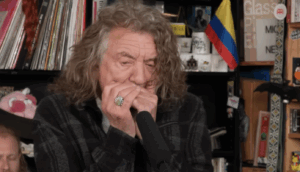Pete Townshend Reveals He’s Suicidal And Talks About Mental Health

Image via Eleven Warriors
Pete Townshend, legendary guitarist of The Who, recently spoke candidly about his ongoing battle with mental health in an interview with The Sunday Times. The rock icon revealed he experiences “chemical depression” and regularly wakes up in a dark place.
“When I first wake up, I’m suicidal, actually suicidal,” Townshend shared, explaining that his mornings often begin between 2 and 5 a.m., a time when he still feels remnants of the previous day. Despite these struggles, the musician has developed routines to help lift himself out of this mindset.
The Power of a Morning Routine
Townshend has found solace in structure, journaling, and a simple morning ritual. “I have a couple of cups of tea, two digestive biscuits — apparently equal to 17 sugar lumps — and I feel happy,” he joked. He explained how starting his journals too early can make things seem bleaker.
“If I start my journals before I have my cup of tea, I’ll paint a very bleak picture of my life, despite the fact that I have everything that I want and everything that I need … And I have had a really extraordinary life.”
For Townshend, these small habits serve as a way to rebuild himself each day.
Why He Quit Therapy
Although Townshend once tried therapy, it didn’t resonate with him. “After the third year, I realized that the woman counseling me had only said about three words. I was just listening to myself,” he admitted. Instead, he turned to journaling as his outlet. He said:
“Every morning I rebuild myself in a sense with tea and coffee, and a few vitamin pills.”
While therapy wasn’t for him, Townshend acknowledged its value for others. He noted:
“I think because of social media in particular, the way that we carelessly share not only our anxieties but also perhaps our solutions.
“We’re a bit careless about that because what works for me won’t necessarily work for you.”
By sharing his story, Townshend sheds light on the personal challenges behind his storied career and the importance of finding what works for your own mental health journey.













